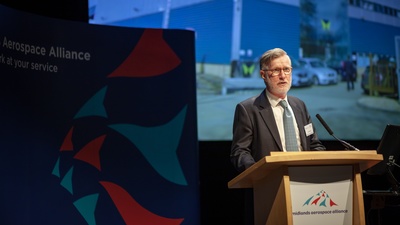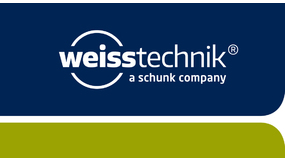Andrew Mair, MAA CEO, shares his views on how aerospace can overcome current challenges as it heads toward a new, greener future
There is a lot of talk these days about inflexion points, times when everything seems to be moving in new directions. Sometimes it takes external shocks. How will we look back on 2022?
2021 has been another challenging year for aerospace, with the pandemic continuing to affect companies right along our industry’s supply chains. But there are strong signs the upturn is on its way with new aircraft orders and production rates picking up. Despite the recent anxieties caused by the Omicron variant, forecasts provided by the aircraft makers continue to hold, creating greater predictability in terms of a recovery as time progresses.
The variant is, of course, temporarily causing companies to rethink the management of their workforces once more with government recommending that people work from home where possible and take more precautions. Many of us aren’t waiting for government mandates, we’re already re-instating what we need to do to keep our workplaces safe.
It has never been more true that “our people are our greatest asset.” As aerospace manufacturers begin to ramp production back up, skills shortages threaten to pose serious challenges. Many skilled professionals took the decision to exit the sector during the period of redundancies and severe uncertainty in 2020 -- and they will be hard to replace. Even now, we have to be realistic that valued employees are looking to leave aerospace for what they perceive to be more stable industries. Companies not only have to compete in the global market place to win business, they have to compete as employers to provide attractive opportunities if they are to deliver on their customers’ expectations.

MAA Chief Executive Dr Andrew Mair
Aerospace suppliers that pivoted and diversified beyond aerospace during the pandemic are reporting that they are seeing the benefits, with greater stability found in complementary high-value manufacturing markets such as defence, rail and medical. This trend to suppliers committing their future manufacturing capacity and skilled capability to other attractive industries could cause its own challenges for the big aerospace customers when they seek to place new orders; do the big customers fully recognise that their suppliers are one of their biggest assets?
Meanwhile, our aerospace manufacturers haven’t been standing still. Many, up and down our supply chains, stand to reap the rewards of investments in improvement projects carried out when order books went quiet. Productivity improvements, capability enhancements, organisational restructures and training programmes are all helping these companies reach new levels of competitiveness which will serve them well in competing for new work.
At the MAA, we’re delighted that we’ve already been able to support more than 100 Midlands companies with a wide range of bespoke improvements and innovations through the £20m Aerospace UP programme we are running with the University of Nottingham’s brilliant Institute for Aerospace Technology, supported by the final round of the European Regional Development Fund (ERDF). The results are already starting to show with new products, technologies, processes and solutions coming to market that may not have been possible, or not possible so quickly, otherwise. The programme will still be running throughout 2022, with grants, technical support, workshops and student placements available. Find out more at aerospaceup.com.
We’re now working more closely with the Midlands Engine and Andy Street’s West Midlands Combined Authority, playing our part in the discussions around the greener economy in the region and ensuring that the voice of the Midlands aerospace cluster is heard. With sustainability set to become an ever more urgent focus in 2022, it’s vital that our stakeholders understand how our cluster can contribute to greener aviation not just here but right around the world. Certainly, sustainability will create a new era for aerospace where we will have to find new ways to fly and new ways to design and manufacture aircraft. We need to continue to work together to address our industry’s technology challenges, at the same time creating continuing opportunities for business success and rewarding employment – what the MAA is all about.
Talking of which, there is still no consensus yet over which technology pathways will be critical to reaching Jet Zero emissions targets by 2050 – will it be hybrid-electric, hydrogen, sustainable aviation fuel, or a combination? So, don’t miss our Jet Zero Midlands Conference on 27th January where you’ll hear about the opportunities and challenges as well as have the chance to have your say. Click here fore more information:
One thing that has been particularly impressive this year is how, despite the challenges and uncertainties, companies right across the Midlands aerospace cluster have come together to support each other, sharing learning and celebrating successes achieved in a sometimes difficult climate. Our industry may be in a holding pattern for a few months more but we can have confidence, given the level of determination and proactivity in the sector, that aerospace will regrow stronger than ever, and head off in the exciting new directions our people, our region and the planet demand of us.






